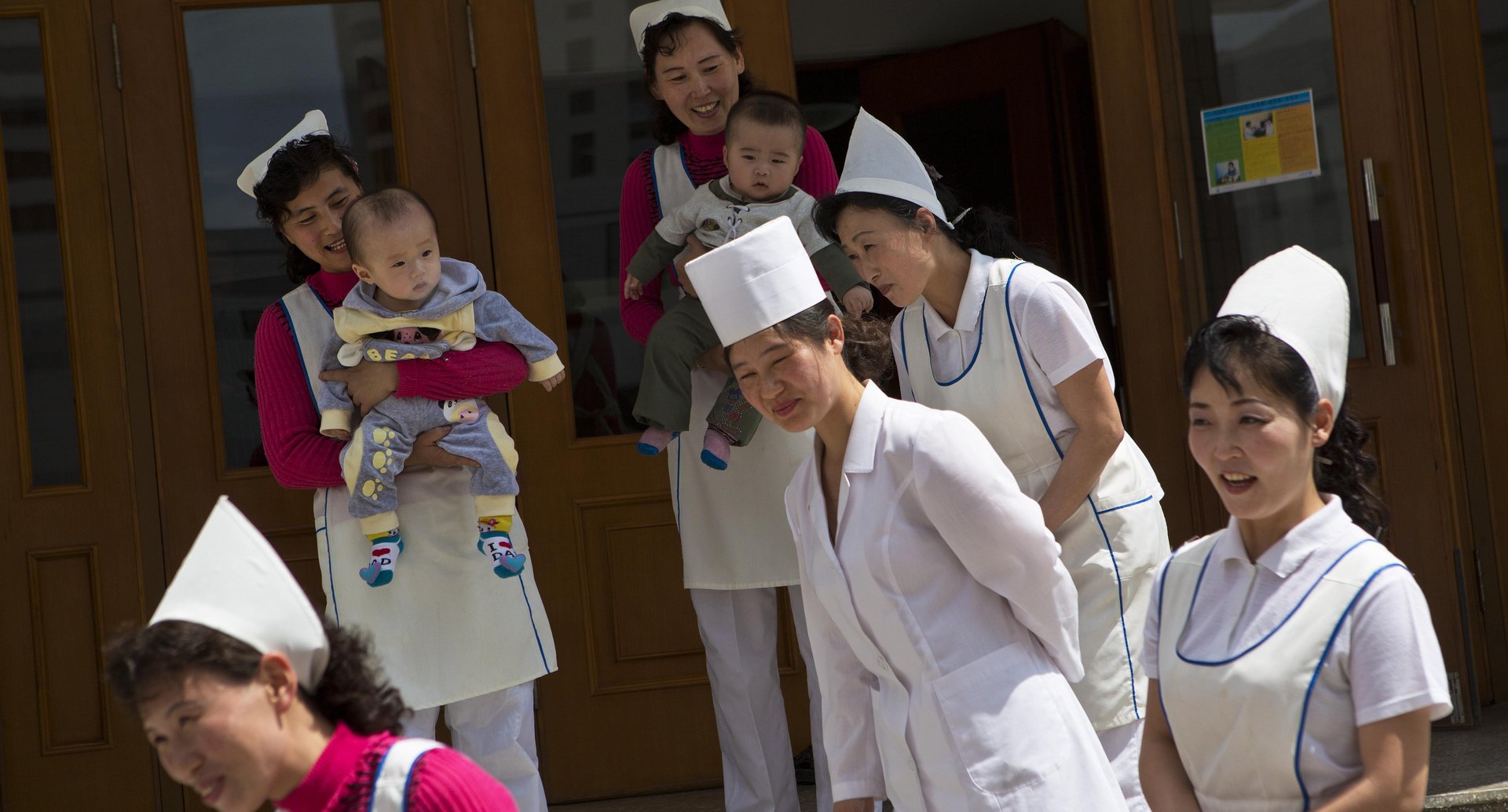South Korea will send $8 million in aid to North Korea because it says humanity trumps politics
As the screws tighten around North Korea from countries around the world, South Korea announced a decision today (Sept. 21) to send $8 million in humanitarian aid to Pyongyang.


As the screws tighten around North Korea from countries around the world, South Korea announced a decision today (Sept. 21) to send $8 million in humanitarian aid to Pyongyang.
South Korea’s unification minister Cho Myoung-gyon said that aid should be “separated from political consideration,” even as more and more countries respond to calls led by the US that only strong pressure can force Pyongyang to abandon its military provocations and nuclear weapons program. It has not determined when the aid will be sent to North Korea.
Aid from South Korea will be distributed via United Nations agencies such as Unicef, which today (Sept. 21) called for urgent relief for North Korean children, who are suffering from chronic malnutrition. The new aid commitment marks the first time South Korea is donating aid to the North since December 2015.
Liberal South Korean governments have a track record of providing aid to its neighbor even amid serious provocations. President Kim Dae-jung gave $35 million one year after North Korea carried out its first nuclear test in 2006, while conservative leader Lee Myung-bak cut off all aid after another such test in 2009.
South Korean president Moon Jae-in has pledged his support for stronger sanctions against Kim Jong-un’s regime, in line with the US. However, Moon, a human rights lawyer who came to power this year on a platform of a more conciliatory approach to Pyongyang, is persevering with a “carrot” approach, for example by using sport as a diplomatic tool ahead of South Korea’s hosting of the Winter Olympics next year. Trump has called Moon’s approach “appeasement,” and Japan has also expressed disagreement Seoul’s decision to send aid.
At home, a Gallup poll in August found that more than half of South Koreans think aid to the North should be suspended if it doesn’t give up its nuclear weapons, while opposition conservative parties have blasted Moon’s aid decision.
South Korea’s decision to send aid to the North comes at a time when a growing number of countries are putting pressure on Pyongyang in various ways. Mexico, Kuwait, Spain, and Peru have expelled North Korean ambassadors in recent weeks. Taiwan—which isn’t a member of the United Nations and therefore not bound to comply with sanctions—said this week it would stop exporting energy to and importing textile products from North Korea. Qatar and Kuwait, key US allies, said yesterday (Sept. 19) they would stop issuing visas for North Korean laborers, curtailing another source of hard cash for Pyongyang.
The leaders of South Korea, Japan, and the US will talk at the UN later today. Seoul’s approval of humanitarian aid to North Korea may have complicated the meeting even more.